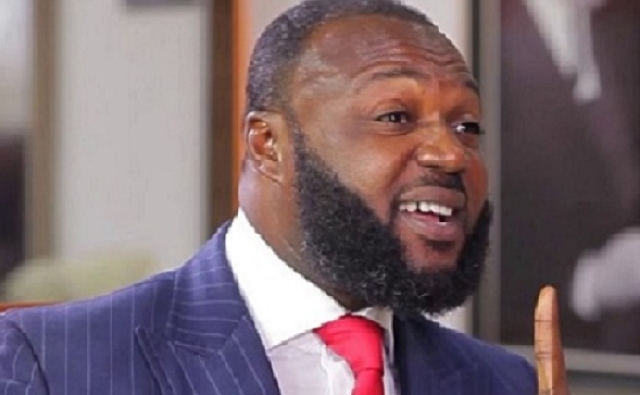Bank clean-up: Ato Essien pleads not guilty; granted GHS200m bail
 Ato Essien
Ato Essien
The former Chief Executive Officer (CEO) of defunct Capital Bank, Mr Willaim Ato Essien, two other officials of the bank and a businesswoman who are standing trial at the Accra High Court, have pleaded not guilty to the 26 charges against them.
Essien, Tettey Nettey, Fitzgerald Odonkor and Kate Quartey Papafio, the businesswoman, pleaded not guilty to various counts of stealing, abetment to stealing, conspiracy to steal and money laundering.
It is the case of the A-G that the three accused persons stole, conspired to steal or laundered more than GH¢220m belonging to the bank.
The trial is being presided over by Justice Eric Kyei - Baffour with the Attorney -General (A-G), Ms Gloria Afua Akuffo, representing the state.
Mr Baffour Gyewu Bonsu, who is holding brief for Lawyer Thaddeus Sory is representing Essien and Nettey, while MrJustine Amenuvor, a former General Secretary of the Ghana Bar Association is representing Nettey.
A former Deputy A-G, Dr Dominic Ayine, is representing Papafio.
The three men were each admitted to a bail bond of GHS200 million while the only woman among them was admitted to a bail bond of GHS75 million with multiple sureties.
Civil action
In November 2018, the receivers of the collapsed bank, Mr Vish Ashiagbor and Mr Eric Nipah, both of PricewaterhouseCoopers (PwC), instituted a civil action against Essien and 13 shareholders and directors for allegedly engaging in acts that led to the collapse of the bank.
The suit was filed at the Commercial Division of the Accra High Court.
The plaintiffs are seeking to use the legal action to recover over GH¢837 million, being what they said were loans that the shareholders granted to themselves which remained unpaid.
By their alleged actions, the plaintiffs said, the defendants “have breached their fiduciary duties under the Companies Code, 1963 (Act 179) and have caused serious financial loss to the bank’’.
Revocation of licence
On August 14, 201, the licences of the Capital and UT banks were revoked by the Bank of Ghana (BoG) after it had declared them insolvent.
The BoG allowed the state-owned bank, GCB Bank, to acquire the two banks in order to protect depositors’ funds and also enable them to stay afloat.
The hurricane that swept through the banking industry due to the collapse of the two banks further heightened in August 2018 when the central bank collapsed five other indigenous banks and merged them into one entity known as the Consolidated Bank.
Source: Daily Graphic
Trending Business

Non-performing energy sector heads to be sacked -Energy Minister warns
13:14
Insurance brokers do not face trust issues with insurers – Shalbu Ali
12:11
IBAG reflects on a “mixed year” as industry records major wins
11:46
Domestic tourism spending hits GH₵6.59bn in 2023 - GSS
08:55
Bank of Ghana holds post-MPC engagement with bank CEOs after 127th meeting
03:53
Ghana's Cybele Energy makes history with offshore Guyana oil block deal
12:53
IBAG elects new executives at 12th general meeting
04:57
First Atlantic Bank PLC set for official listing on the Ghana Stock Exchange
12:46
SIC Managing Director James Agvenim-Boateng honoured by IBAG
05:34
IMF technical mission engages Ghana on implementing governance reforms
05:08



